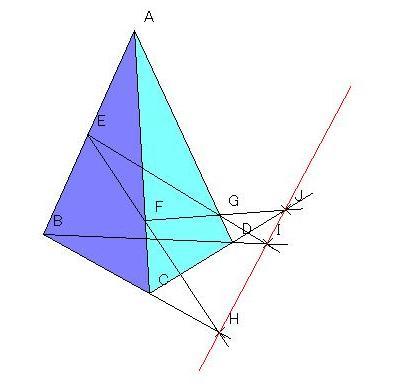結果
| 問題 | No.1031 いたずら好きなお姉ちゃん |
| コンテスト | |
| ユーザー |
 convexineq convexineq
|
| 提出日時 | 2020-04-17 22:50:58 |
| 言語 | PyPy3 (7.3.17) |
| 結果 |
RE
|
| 実行時間 | - |
| コード長 | 5,008 bytes |
| 記録 | |
| コンパイル時間 | 266 ms |
| コンパイル使用メモリ | 82,000 KB |
| 実行使用メモリ | 69,400 KB |
| 最終ジャッジ日時 | 2024-10-03 14:34:50 |
| 合計ジャッジ時間 | 5,151 ms |
|
ジャッジサーバーID (参考情報) |
judge5 / judge4 |
(要ログイン)
| ファイルパターン | 結果 |
|---|---|
| sample | RE * 3 |
| other | RE * 53 |
ソースコード
# coding: utf-8
# Your code here!
def Euler_tour_vertex(g,root):
n = len(g)
parent = [-1]*n
ls = [0]*n
rs = [0]*n
cnt = 0
q = [root]
while q:
v = q.pop()
if v >= 0: #行きがけ
ls[v] = cnt; cnt += 1
q.append(-v-1)
for c in g[v]:
if c != parent[v]:
parent[c] = v
q.append(c)
else: #帰りがけ
rs[-v-1] = cnt
return ls,rs
class segment_tree:
def __init__(self, N, operator_M, e_M):
self.op_M = operator_M
self.e_M = e_M
self.N0 = 1<<(N-1).bit_length()
self.dat = [self.e_M]*(2*self.N0)
# 長さNの配列 initial で初期化
def build(self, initial):
self.dat[self.N0:self.N0+len(initial)] = initial[:]
for k in range(self.N0-1,0,-1):
self.dat[k] = self.op_M(self.dat[2*k], self.dat[2*k+1])
# a_k の値を x に更新
def update(self,k,x):
k += self.N0
self.dat[k] = x
k //= 2
while k:
self.dat[k] = self.op_M(self.dat[2*k], self.dat[2*k+1])
k //= 2
# 区間[L,R]をopでまとめる
def query(self,L,R):
L += self.N0; R += self.N0 + 1
sl = sr = self.e_M
while L < R:
if R & 1:
R -= 1
sr = self.op_M(self.dat[R],sr)
if L & 1:
sl = self.op_M(sl,self.dat[L])
L += 1
L >>= 1; R >>= 1
return self.op_M(sl,sr)
def get(self, k): #k番目の値を取得。query[k,k]と同じ
return self.dat[k+self.N0]
class segment_tree_dual:
def __init__(self, N, compose, funcval, ID_M=None):
self.compose = compose
self.ID_M = ID_M
self.funcval = funcval
self.height = (N-1).bit_length() #木の段数
self.N0 = 1<<self.height #木の横幅 >= N
self.laz = [self.ID_M]*(2*self.N0) #作用素の木
self.val = None #値の配列
#初期値の配列を作る
def build(self,initial):
self.val = initial[:]
#laz[k] を子に伝える、k が一番下の場合は laz[k] を val に反映する
def propagate(self,k):
if self.laz[k] == self.ID_M: return;
if self.N0 <= k:
self.val[k-self.N0] = self.funcval(self.val[k-self.N0], self.laz[k])
self.laz[k] = self.ID_M
else:
self.laz[(k<<1) ] = self.compose(self.laz[(k<<1) ],self.laz[k]);
self.laz[(k<<1)+1] = self.compose(self.laz[(k<<1)+1],self.laz[k]);
self.laz[k] = self.ID_M;
# 遅延をすべて解消する
def propagate_all(self):
upto = self.N0 + len(self.val)
for i in range(1,upto): self.propagate(i)
# laz[k]およびその上に位置する作用素をすべて伝播
def thrust(self,k):
for i in range(self.height,-1,-1): self.propagate(k>>i)
# 区間[l,r]に関数 f を作用
def update(self, L,R,f):
L += self.N0; R += self.N0+1
#登りながら関数 f を合成
while L < R:
if R & 1:
R -= 1
self.laz[R] = self.compose(self.laz[R],f)
if L & 1:
self.laz[L] = self.compose(self.laz[L],f)
L += 1
L >>= 1; R >>= 1
# values[k] を取得。
def point_get(self, k):
res = self.val[k]
k += self.N0
while k:
if self.laz[k] != self.ID_M:
res = self.funcval(res, self.laz[k])
k //= 2
return res
# values[k] = x 代入する
def point_set(self, k):
self.thrust(k+self.N0)
self.val[k] = x
import sys
sys.setrecursionlimit(10**6)
readline = sys.stdin.readline
read = sys.stdin.read
n,k,q = [int(i) for i in readline().split()]
c = [int(i) for i in readline().split()]
a = [int(i) for i in readline().split()]
g = [[] for _ in range(n)]
for i in range(n-1):
e,f = [int(i)-1 for i in readline().split()]
#g[e].append(f)
g[f].append(e)
ls,rs = Euler_tour_vertex(g,0)
for i in range(n): rs[i] -= 1
compose = max
funcval = max
ID_M = 0
fun = segment_tree_dual(2*n, compose, funcval, ID_M)
fun.build([0]*2*n)
for lsi,rsi,ci in zip(ls,rs,c):
fun.update(2*lsi,2*rsi,ci)
fun.propagate_all()
INF = 10**9
posl = segment_tree(k,min,INF)
posr = segment_tree(k,max,0)
res = segment_tree(2*n,min,INF)
res.build(fun.val)
for i,ai in enumerate(a):
posl.update(i,2*ls[ai-1])
posr.update(i,2*rs[ai-1])
#print(g)
#print(ls,rs)
#print(res.dat)
for _ in range(q):
t,x,y = [int(i) for i in readline().split()]
x -= 1
y -= 1
if t==1:
#print("move",x,y,ls[y],rs[y])
posl.update(x,2*ls[y])
posr.update(x,2*rs[y])
else:
#print(posl.dat,posr.dat)
L = posl.query(x,y)
R = posr.query(x,y)
#print(L,R,x,y)
print(res.query(L,R))
